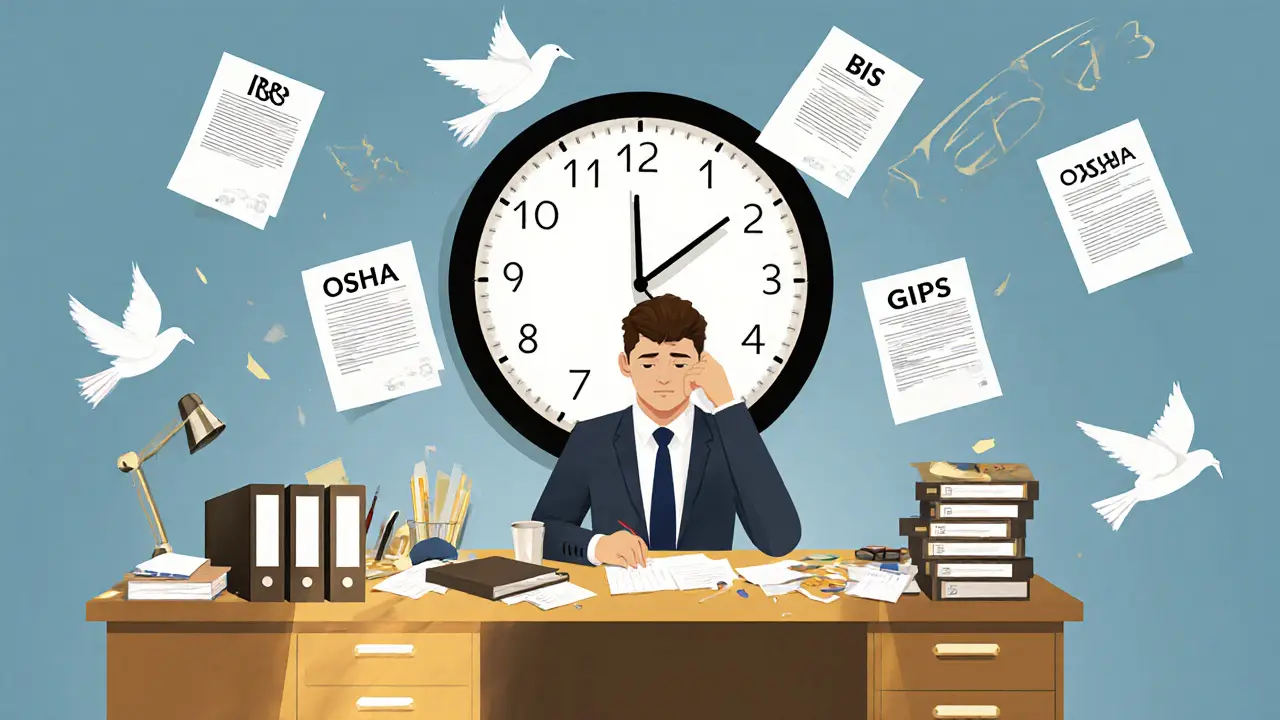Understand U.S. record keeping requirements for taxes, exports, healthcare, and employment. Learn retention rules from IRS, BIS, GIPS, OSHA, and EEOC - and how to avoid costly penalties.
OSHA Recordkeeping: What It Means for Crypto Businesses and Workplaces
When you think of OSHA recordkeeping, the federal system that requires employers to track workplace injuries and illnesses. Also known as workplace safety logging, it's not just about filling out Form 300—it’s about protecting people who build, mine, and manage the crypto economy. Many assume OSHA only applies to construction sites or factories. But if your crypto business runs a mining farm, has a team in an office, or even hires remote workers who use heavy equipment or sit at desks for 12 hours a day, you’re not exempt.
Take crypto mining, the process of validating blockchain transactions using powerful hardware. Also known as Bitcoin mining, it often happens in warehouses with rows of ASIC miners, loud cooling systems, and high electricity loads. These environments create real risks: overheating equipment, electrical burns, tripping over cables, even hearing loss from constant noise. If someone gets hurt and you don’t log it, you’re not just breaking the law—you’re hiding a pattern that could cost lives. The same goes for crypto exchanges with back-office teams. Carpal tunnel from typing all day? That’s a recordable injury under OSHA. Mental health crises from burnout? Not directly recordable, but ignoring them still puts you at legal risk.
Some crypto companies think they’re too small or too new to be watched. But OSHA doesn’t care if you’re a startup or a DAO. If you have more than 10 employees and aren’t in a partially exempt industry, you must keep records. And guess what? The U.S. government is getting better at cross-referencing data—from utility bills showing massive power use in one location, to job postings listing mining hardware specs. If your operation looks like a mining farm, they’ll check if you’re reporting injuries.
And it’s not just about fines. When a worker gets hurt and there’s no record, insurance claims get messy. Investors walk away. Employees lose trust. In 2024, a crypto mining company in Texas got shut down after an OSHA inspection found 17 unreported injuries over two years—including two cases of severe electrical shock. Their excuse? "We didn’t think it counted." That’s not a defense. That’s negligence.
On the flip side, companies that get OSHA recordkeeping right see fewer accidents, lower insurance costs, and better team morale. They don’t just fill out forms—they use the data to fix problems. One crypto firm in Georgia started tracking near-misses (like a miner overheating before it failed) and cut equipment failures by 60% in six months. That’s not luck. That’s smart safety culture.
So whether you’re running a home mining rig with three machines or managing a team of 50 in a crypto office, OSHA recordkeeping isn’t a bureaucratic chore. It’s a tool to keep your people safe and your business running. The posts below show real cases where crypto companies ignored this—and paid the price. They also highlight the ones that got it right, turned safety into a competitive edge, and kept their teams alive and productive. You don’t need to be a lawyer to understand this. You just need to care enough to look.
